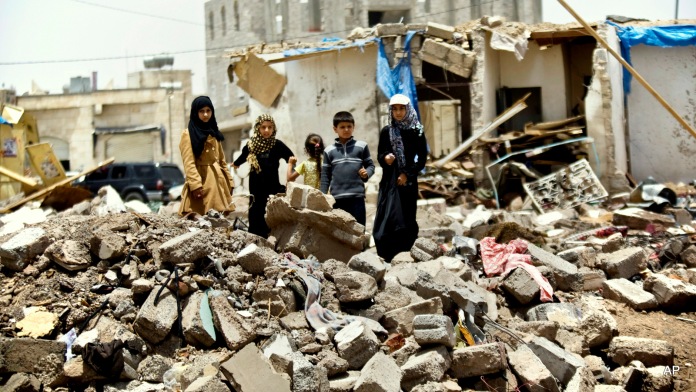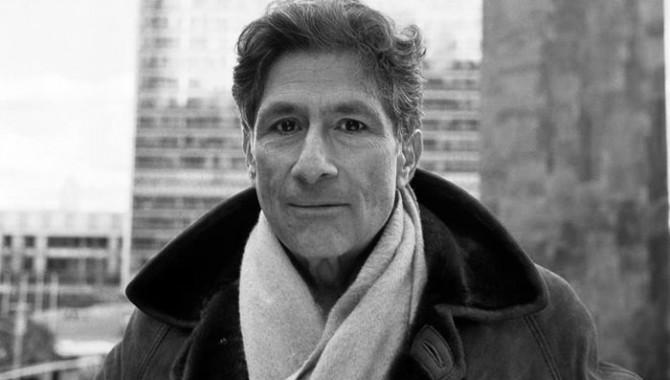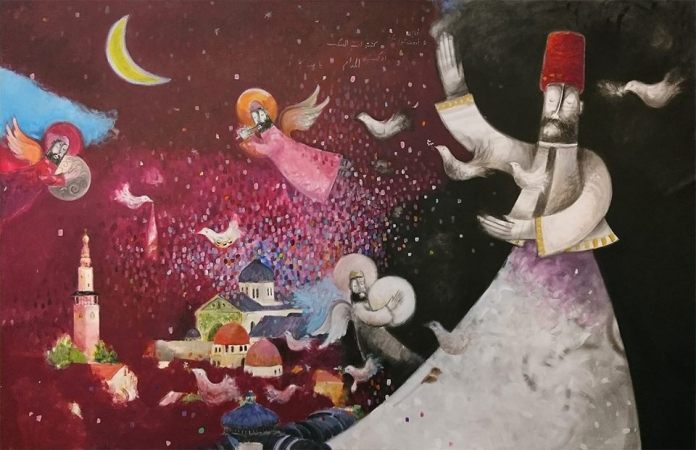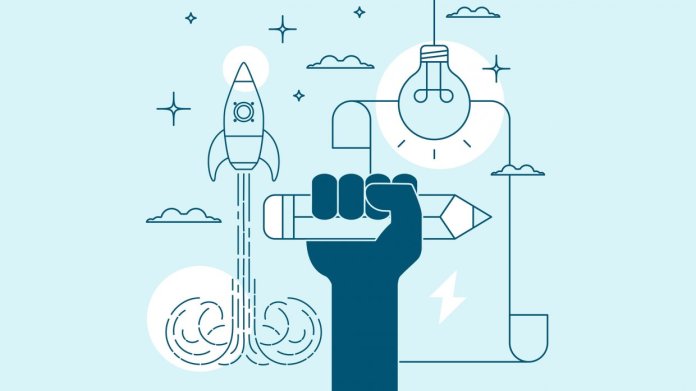 /Photo by Ahmed Fouda/
/Photo by Ahmed Fouda/
Jehan Bseiso is a Palestinian poet, researcher and aid worker. Her poetry has been published inWarscapes, The Funambulist, The Electronic Intifada, and Mada Masr among others. Her book I Remember My Name (2016) is the creative category winner of the Palestine Book Awards. Bseiso is co-editing Making Mirrors a new anthology by, for and about refugees. Her work also appears in an anthology marking a decade of the Palestine Festival of Literature titled This is Not a Border (published by Bloomsbury Press, 2017).
She is currently working on a collection of poems: Conversations Continued, a compilation of real, misheard, and misremembered conversations. Bseiso has also been working with Médecins sans Frontières /Doctors Without Borders since 2008.
To me, Jehan’s work embodies the pride, dignity, love, defiance, resistance and bravery expressed in one sentence/thought/sentiment – This is not a border (also the title of an anthology of PalFest). In that spirit, This is not a border entails a vision of a different landscapes of today and tomorrow, a desire and determination to write one’s own narrative and own who you are, it means challenging power and staus quo, and finally – it’s an expression of love. With that in mind, Jehan and I meet again.
Our meeting is not in cafés on Hamra in Beirut, where we hugged for the first time, nor watching the blue horizon stretching all around tiny Croatian islands, which we both keep under our eyelids – but typing e-mails, thousands of kilometres apart – the same way we started talking four years ago, when I contacted her for the first time, intrigued by her poetry. We discuss borders, wars, diaspora, homeland, love…
Just last month, a new Israeli construction plan to cut off Ramallah from East Jerusalem was presented. The project would add 1,100 housing units to the settlement of Geva Binyamin. In his book Palestinian walks: Notes on a Vanishing Landscape, Raja Shehadeh captures the changing landscape of (the idea of) Palestine. How do you personally deal with that landscape?
Before I visited Palestine for the first time in 2012, its landscape was emotional and imaginary, both known and unknowable. Now if I close my eyes I can see the occupation’s determination to violate and violence the land. Only couple of days ago, settlers set farmland on fire near Nablus and Palestinians were prevented even from putting it out, they were forced to watch it burn.
I actually had the good fortune of walking the hills of Ramallah with Raja Shehadeh in May 2016 and 2017 as part of the Palestine Festival of Literature activities. With a group of international writers and artists from all over the world, we walked the hills of Ramallah, reflecting on the way the occupation marks and transforms the lands.
In her poem Gaza Hala Alyan writes: This is diaspora… This is don’t change the channel/the least you can do is watch. In your poem Gaza, From the Diaspora –Part Two, you write: Dear Diaspora, Boycott. Could we talk about the diaspora experience – its mixture of guilt, loss, misremembering, responsibility, fatal loving –how can one unravel that web?
I think of that beautiful poem by Hala as an alarm bell and a prayer for the diaspora.
The first time I heard the word diaspora, I was in a classroom and the teacher wanted someone to explain it in English and translate it into Arabic. No one could, she singled me out that day and said you should know what it means, you’re Palestinian – Al Shatat. Since then I’ve felt a strange affinity with the word. For me diaspora is a layer of citizenship you can choose to opt out of; when you are physically so far away, you can decide to switch off mentally and emotionally.
There is apathy dust that can settle on the diaspora that I like to challenge; which is why I call on them in some of my poems, asking them to engage, read, listen, ask questions. The thing is, even those who are on the move willingly, for education, for work, for a better future with better prospects are also leaving home and homeland behind. The Palestinian diaspora cannot go back, that’s what the right of return is all about.
In connection to the previous question, I will ask you a question asked by Ghassan Kanafani in Returning to Haifa – what is a homeland, after all?
For refugees forced to flee, homeland is a ball of fire they’re running fast as possible away from. For others, born and raised in refugee camps, homeland is a place beyond the sun, accessible only in dreams.
For me, Home is not a physical place, it’s a warm feeling radiating through all the little details that make our lives worth living. A perfect cup of coffee in the morning, made with exactly the right amount of milk, hearing my mother’s laugh, holding the hands of the man I love as the plane takes off. The truth is that I feel at home everywhere I go because after a certain point you carry all those details with you.
Homeland on the other hand is a very specific shape on the map, often misnamed and misrepresented. As a Palestinian born, raised, and living outside Palestine, homeland is on the other side of the border. It’s in the questions of the private security company contractors hired by the Israeli government at Allenby bridge, it’s the look on my grandmother’s face when she talks about orange fields and blue Gaza waters. Homeland is every time I say “occupied Palestine” when someone says Israel, in the little narrow streets of the old city in Jerusalem.
I often wonder how my children will understand or experience homeland, it’s not like I was indoctrinated by my parents, I was never told or forced to feel anything. I gravitated to homeland in my writing, my sense of grave injustice took me there, my heart travelled first and then my body followed.
You are one of the authors featured in the anthology I Remember My Name, together with Ramzy Baroud and Samah Sabawi. The book was the creative category winner of the Palestine Book Awards. How did you get involved in this project and how important is it for you to have your work published in collaboration with other poets?
I Remember My Name is the quintessential diaspora project; all of us come from Gaza but Ramzy lives in the US, Samah lives in Australia and I was in Cairo when we started talking about the anthology. Editor Vacy Vlazna and artist David Borrington put their heart into it and when it finally came together we were all so proud.
Until today, I’ve only met David – we went to London together to receive the award on behalf of Ramzy, Samah and Vacy. Having my work in such good company is very important to me, and most recently two of my pieces appear in an anthology marking a decade of the Palestine Festival of Literature titled This is Not a Border (first published by Bloomsbury Press in the UK).
You’ve been working for Médecins Sans Frontières for almost nine years. Was it hard to keep it going parallel with your writing, which is, I assume, taking more of your time and energy? You once beautifully said there’s work in your poetry, and poetry in your work – is that the key?
Yes! That’s my new motto: poetry in work, and work in poetry.
As a literature graduate I was told I have two choices, write or teach. I would love to write or teach full time at some point, but for now I made a different choice by joining Médecins Sans Frontières with whom I’ve been working in places near home like Iraq and Libya but also further away like Afghanistan, Pakistan and Somali region of Ethiopia.
When I joined MSF I actually hid the fact that I was a poet from everyone because I wanted to be taken seriously as a humanitarian worker. However, despite all my efforts to choose between poetry and MSF I have so far failed miserably. My poems are about love and war, heartbreak and refugees dying at sea in their attempt to run away from poverty and conflict. Poetry is now a site of intersection that displays the explosive choices i’ve been making as an aid worker and a writer.
How did working for Médecins Sans Frontières change you? Is there a specific MSF moment you will remember – a trip somewhere, or meeting someone?
I met two lovers in detention two years ago, they were criminalized even just for trying to escape war and poverty. They attempted to leave by boat to Europe more than once, they were arrested several times, but they still had so much determination and hope it was amazing. They finally succeeded to get on a boat, and it sank, leaving one of them alive and the other dead. When I think of love, I think of the way they looked at each other in detention, the way he was worried about her when we took her to the hospital because she was ill. Somehow that was one of the most moving encounters I’ve had.
A colleague once told me that the more he travels and works with MSF, the more he realizes how much we all have in common, despite our insistence on all the details that make us different. We all want the same things; love, success, community, a better future, dignity in life and death.
Nowhere refuge, only refugees, you write. How important is it for you to respond to the burning issues of our time through your poetry – one of them being the crisis of European refugee policy?
The media is reporting about refugee fatigue and compassion fatigue. I find the notion that compassion can be finite truly terrifying. I spend a lot of time looking at facts and figures, and reading “human stories”; I prefer just saying “stories”, because humanity is obvious, once we start having to state that the refugees are “also human-look at them!” we are catering to anti-refugee propaganda even with the best of intentions.
Like many people I can say that i’m haunted by the refugee crisis, and it’s a global one. I’m haunted at my work, by the images of bodies clinging to orange life vests, and i’m haunted at night when I think of how random it is, that it’s not me, not my family.
People must realize as you mention that it’s not a European refugee crisis, but one that is being exacerbated by European refugee policy. It is also a global refugee crisis. For example, hundreds of thousands of people are fleeing conflict and famine in South Sudan and seeking safety in Uganda. Few people are aware that Uganda is now hosting more than 1.3 million people, more than any country in Europe at the height of the “European refugee crisis”.
I currently live in Lebanon, a country where one in four is a Syrian refugee, and at least 400,000 Palestinian refugees have been living in camps for more than 50 years – it’s impossible to ignore the refugee crisis, and its political and economic drivers.
You are co-editing Making Mirrors, a new anthology by, for and about refugees. The anthology is challenging the objectified, passive refugee narrative. Can you tell us more about it?
The plan is to offer a volume of poetry by, about, and for refugees, that seeks to connect artistic voices of those fleeing violence from Afghanistan, Syria, Palestine, Somalia, Iraq, and other war torn countries. I am editing this anthology with US poet and scholar Becky Thompson, and our hope is that Making Mirrors will provide a multilingual interactive, collaborative volume of poems that will be published as a book and also a website.
Among those whose work is set to be included in the collection are prominent poets Naomi Shihab Nye, Zeina Hashim Beck, Zeina Azzam, and Hala Alyan. We have received incredibly powerful poetry from first-time writers, in different languages, and we are currently working on holding writing workshops to generate more poetry from within refugee communities.
In one of our previous talks, you said how women from the MENA region are portrayed either as victims or superheroes, and that is too much of a burden. Just last month, Mashrou Leila put out a new video, for the song Roman. The video aims to “celebrate and champion a coalition of Arab and Muslim women, styled to over-articulate their ethnic background, in a manner more typically employed by Western media to victimise them”. Do you feel the victim/superhero narrative is being more challenged nowadays, with efforts such as this one?
I think a lot more needs to be done in order to dislodge Western media’s obssession with the victim/superhero narrative in the portrayal of both men and women from the MENA region; and now you can also add terrorist to that oppressive framework so it’s victim/terrorist/superhero.
I am a big fan of Mashrou Leila; I find their music and lyrics original, subversive and full of heart and mind. That video is like a good poem, it recalls and disrupts images, ideas and narratives from a perspective of expansion; you always end up with more at the end. This is precisely what I love about poetry; freedom of interpretation and play.
You are performing your poetry all over the world and working on a collection of poems, Conversations Continued, which is a compilation of real, misheard, and misremembered conversations. What has that process been like so far?
I have divided the poems in Conversations Continued into three main chapters; Conversations Homeland is mostly about Palestine and the search for home inside and outside, Conversations Habeebi is about love, its necessity and impossibility sometimes. In Conversations ThawraI write about hope and despair in the wake of the so-called “Arab Spring”. Many of the pieces started as incomplete letters, facebook posts, interrupted conversations all distilled into poems.
I am always listening to people talking around me, because I am fascinated by what we call “ordinary” use of language in conversation – I find it actually quite extraordinary.
Finally, what are you reading at the moment, can you share some words/thoughts that have inspired you lately?
In a world that continuously divides and conquers our concentration, lately I have become a reader with commitment and attention span issues. This is why I read more than one thing at a time. Currently I am in awe of Look by Solmaz Sharif; her writing perches at that intersection between politics and poetry, art and life – it’s an important collection of poems, one that needs to be studied not only read. I am also going in and out of Hisham Matar’s The Return and rereading a collection of dark and somber short stories by the inimitable Ghassan Kanafani.
• • •
This interview was also published in Croatian, on H-Alter.


 /Kamilya Jubran, photo via
/Kamilya Jubran, photo via  /Photo:
/Photo:  /photo: Jeremy Pollard/
/photo: Jeremy Pollard/ //all images © Boutros Al-Maari//
//all images © Boutros Al-Maari//


 //illustration: iStock.com/Marvid//
//illustration: iStock.com/Marvid// /Photo by Ahmed Fouda/
/Photo by Ahmed Fouda/ /all art © Owaikeo/
/all art © Owaikeo/


 /Scenes from Syrian War: Raqqa, by
/Scenes from Syrian War: Raqqa, by